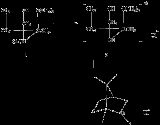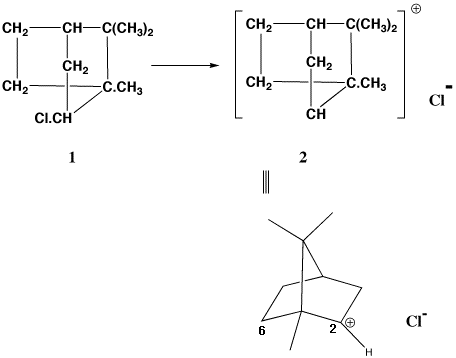
Hans Meerwein
Encyclopedia
Hans Meerwein was a German
chemist
.
His name is present in the names of several reactions and reagents, for example the Meerwein-Ponndorf-Verley reduction
, the Wagner-Meerwein rearrangement
. and the Meerwein's salt.
 After his training as chemotechnician from 1898 till 1900 at the Fresenius chemistry school he started studying chemistry at the University of Bonn
After his training as chemotechnician from 1898 till 1900 at the Fresenius chemistry school he started studying chemistry at the University of Bonn
. After finishing his PhD with Richard Anschütz
he did some research at the University of Berlin before coming back to Bonn where he became professor in 1914. From 1922 till 1928 he was professor for organic chemistry at the University of Königsberg
. The last change in his academic career was to the University of Marburg. The war devastated the Institute and Meerwein was planning the rebuilding which was finished in 1953, the year he retired from lecturing. He conducted experimental work with the help of two postdocs until his death in 1965.
His greatest impact upon organic chemistry was to propose the carbocation
2 as a reactive intermediate, originally as a rationalization of the racemization
of isobornyl chloride 1 catalysed by a Lewis acid such as SnCl4. His proposed mechanism for racemization involved s subsequent a 2,6 hydride transfer in the cation; the alternative [1,2] methyl migration, now actually known as a Wagner-Meerwein shift, was in fact suggested for the first time by Houben and Pfankuch.
Germany
Germany , officially the Federal Republic of Germany , is a federal parliamentary republic in Europe. The country consists of 16 states while the capital and largest city is Berlin. Germany covers an area of 357,021 km2 and has a largely temperate seasonal climate...
chemist
Chemistry
Chemistry is the science of matter, especially its chemical reactions, but also its composition, structure and properties. Chemistry is concerned with atoms and their interactions with other atoms, and particularly with the properties of chemical bonds....
.
His name is present in the names of several reactions and reagents, for example the Meerwein-Ponndorf-Verley reduction
Meerwein-Ponndorf-Verley reduction
The Meerwein-Ponndorf-Verley Reduction in organic chemistry is the reduction of ketones and aldehydes to their corresponding alcohols utilizing aluminumalkoxide catalysis in the presence of a sacrificial alcohol...
, the Wagner-Meerwein rearrangement
Wagner-Meerwein rearrangement
A Wagner–Meerwein rearrangement is a class of carbocation 1,2-rearrangement reactions in which a hydrogen, alkyl or aryl group migrates from one carbon to a neighboring carbon.Several reviews have been published....
. and the Meerwein's salt.
Life and work

University of Bonn
The University of Bonn is a public research university located in Bonn, Germany. Founded in its present form in 1818, as the linear successor of earlier academic institutions, the University of Bonn is today one of the leading universities in Germany. The University of Bonn offers a large number...
. After finishing his PhD with Richard Anschütz
Richard Anschütz
Carl Johann Philipp Noé Richard Anschütz was a German chemist.He received his PhD at the University of Bonn for his work with August Kekulé. He became Kekulé's assistant and, later, his successor as professor at the University of Bonn...
he did some research at the University of Berlin before coming back to Bonn where he became professor in 1914. From 1922 till 1928 he was professor for organic chemistry at the University of Königsberg
University of Königsberg
The University of Königsberg was the university of Königsberg in East Prussia. It was founded in 1544 as second Protestant academy by Duke Albert of Prussia, and was commonly known as the Albertina....
. The last change in his academic career was to the University of Marburg. The war devastated the Institute and Meerwein was planning the rebuilding which was finished in 1953, the year he retired from lecturing. He conducted experimental work with the help of two postdocs until his death in 1965.
His greatest impact upon organic chemistry was to propose the carbocation
Carbocation
A carbocation is an ion with a positively-charged carbon atom. The charged carbon atom in a carbocation is a "sextet", i.e. it has only six electrons in its outer valence shell instead of the eight valence electrons that ensures maximum stability . Therefore carbocations are often reactive,...
2 as a reactive intermediate, originally as a rationalization of the racemization
Racemization
In chemistry, racemization refers to the converting of an enantiomerically pure mixture into a mixture where more than one of the enantiomers are present...
of isobornyl chloride 1 catalysed by a Lewis acid such as SnCl4. His proposed mechanism for racemization involved s subsequent a 2,6 hydride transfer in the cation; the alternative [1,2] methyl migration, now actually known as a Wagner-Meerwein shift, was in fact suggested for the first time by Houben and Pfankuch.

